 Petzlover
Petzlover Appenzell Mountain Dog is originated from Switzerland but Sarplaninac is originated from Macedonia. Appenzell Mountain Dog may grow 6 cm / 2 inches shorter than Sarplaninac. Appenzell Mountain Dog may weigh 13 kg / 28 pounds lesser than Sarplaninac. Both Appenzell Mountain Dog and Sarplaninac has same life span. Both Appenzell Mountain Dog and Sarplaninac has almost same litter size. Both Appenzell Mountain Dog and Sarplaninac requires Moderate Maintenance.
Appenzell Mountain Dog is originated from Switzerland but Sarplaninac is originated from Macedonia. Appenzell Mountain Dog may grow 6 cm / 2 inches shorter than Sarplaninac. Appenzell Mountain Dog may weigh 13 kg / 28 pounds lesser than Sarplaninac. Both Appenzell Mountain Dog and Sarplaninac has same life span. Both Appenzell Mountain Dog and Sarplaninac has almost same litter size. Both Appenzell Mountain Dog and Sarplaninac requires Moderate Maintenance.
 Hailing from the Appenzell region of Switzerland and known as the Appenzeller Mountain Dog or the Appenzeller Sennenhunde, this athletic breed of dog has a history which is debatable and which has several theories.
Hailing from the Appenzell region of Switzerland and known as the Appenzeller Mountain Dog or the Appenzeller Sennenhunde, this athletic breed of dog has a history which is debatable and which has several theories.
It is believed the dog is descended from Molossus.The Appenzeller Mountain Dog is one of the 4 recognized Swiss Sennenhunds, appearing to have descended from cattle dogs. The first breed club was founded in 1906 by Albert Heim. However, an early reference to the breed's predecessors was made in a book of 1853, where it refers to dogs in the Appenzell region.
In 1898 the Appenzeller Mountain Dog was shown at the first international dog show and was recognized internationally as a separate breed in 1989.
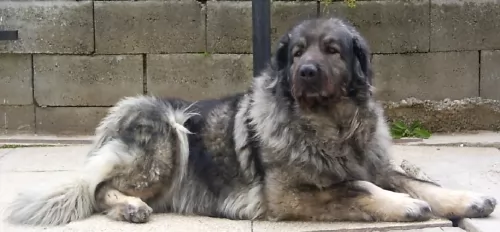 Hailing from Macedonia, the beautiful Sarplaninac dog was developed as a guardian of livestock and is large enough to fight off large predators like bears and wolves.
Hailing from Macedonia, the beautiful Sarplaninac dog was developed as a guardian of livestock and is large enough to fight off large predators like bears and wolves.
Nobody is too sure of the breeds exact origins, though it is thought that its ancestors came to the Balkan Peninsula with people migrating from ancient Asia.
This huge dog is one of the oldest native breeds from ancient Molosser breeds. The dog was recognized in 1939, and in 1954 it became known as the Yugoslav Shepherd Dog. Later the name changed and the dog was recognized by the United Kennel Club in 1995.
 The Appenzell Mountain Dog is a medium-sized dog standing at between 47–58cm at the withers and weighing in at 22–32kg.
The Appenzell Mountain Dog is a medium-sized dog standing at between 47–58cm at the withers and weighing in at 22–32kg.
He is a heavy-built dog and sports a tri-color coat – black, tan and white. He has a double coat with the topcoat being shortish, thick and straight. He sheds throughout the year and isn’t hypoallergenic. He has small ears which are high set and which are floppy. The tail is long and curls when held high.
The Appenzell is an active breed who has been used to herding, fetching and working. Because of his energy levels, he won’t fit in well in a small home where his energy needs can’t be met. However wherever he is, he bonds closely with his human family and thrives on attention from them.
He isn’t known as an aggressive dog, but if as a working breed, he felt that the livestock he was guarding was under threat, he could exhibit some aggressiveness.
He gets on well with children in the home and other pets but is inclined to be wary of strangers. Just as with any other dog, training and socialization does wonders for him, making him relaxed and obedient around people and dogs.
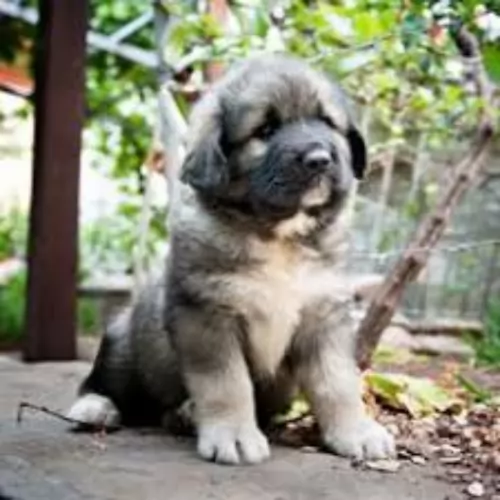 The Sarplaninac is a large, strong, fluffy dog standing at between 54 and 62cm in height and weighing between 30 and 45kg.
The Sarplaninac is a large, strong, fluffy dog standing at between 54 and 62cm in height and weighing between 30 and 45kg.
The coat of the dog is dense, coarse and of medium length. Colors are different shades of grey, white, tan and black. The head is large, the ears are fairly short but are floppy and covered with short hair. The dog is deep chested and the tail is long, often held high and covered with thick, feathery hair.
Protective, reliable, reserved, stubborn and gentle, this intelligent dog is fairly serious, and while he makes a devoted family pet, he is cool and wary of strangers.
Excellent training and socialization makes him well mannered, balanced and obedient around different people. He will tolerate children but won’t take easily to other pets in the house, capable of becoming aggressive with them.
 Herding dogs tend to be independent and somewhat reserved but the Appenzell Mountain Dog is social, outgoing and loving with his human family. When trained and socialized he gets on well with other pets as well as children in the home.
Herding dogs tend to be independent and somewhat reserved but the Appenzell Mountain Dog is social, outgoing and loving with his human family. When trained and socialized he gets on well with other pets as well as children in the home.
He is a working dog, and thrives on being active, so a good amount of exercise will be necessary. He is a courageous, affectionate dog and when you give him the right upbringing and treat him as he deserves to be treated, he becomes a splendid pet.
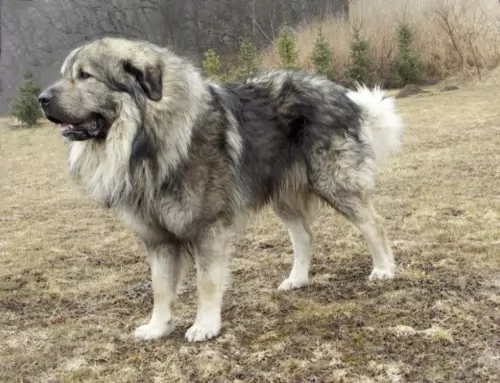 These dogs are protective, but they’re not vicious. When properly raised they are wonderful family pets.
These dogs are protective, but they’re not vicious. When properly raised they are wonderful family pets.
True, it’s a large, strong willed dog that isn’t a good choice for the first-time dog owner. They are good with children, but only children who have been taught how to treat animals with care and patience.
This dog is a powerful guardian type of dog, imposing in size, but it’s all about upbringing, and if you bring him up well then he can make a tremendous pet and companion.
 There are some health problems with dogs which are inherited. It is why some people insist on getting certificates from breeders to show that the parents were cleared of certain diseases such as hip and elbow dysplasia.
There are some health problems with dogs which are inherited. It is why some people insist on getting certificates from breeders to show that the parents were cleared of certain diseases such as hip and elbow dysplasia.
Certainly, it’s a known fact that many health problems can be prevented by the way you feed your dog and the way you raise him.
If you suspect your pet is suffering with an ailment that is making him lethargic and run-down, get him to the vet immediately.
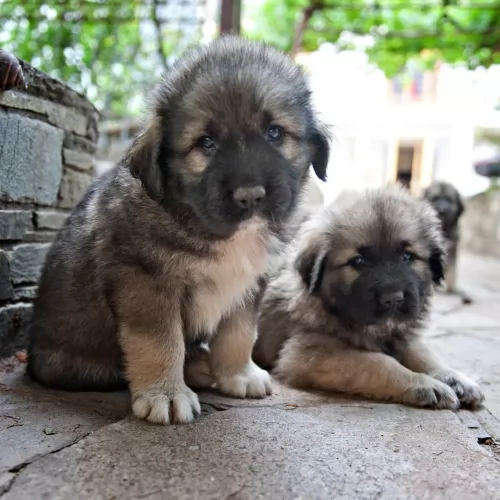 The Sarplaninac dog is a robust dog but he can suffer from health issues such as hip dysplasia, obesity, bloat, ear infections and skin allergies.
The Sarplaninac dog is a robust dog but he can suffer from health issues such as hip dysplasia, obesity, bloat, ear infections and skin allergies.
When your dog gazes up at you with such love in his eyes, don’t be tempted to pop some chocolate into his mouth or let him finish off your ice-cream. Treats like this can damage your pet’s health and give him heat intolerance, breathing difficulties, hypertension, liver disease and diabetes.
 You want your Appenzell Mountain Dog to maintain his thick shiny coat, and because he sheds throughout the year, a good brushing twice a week will benefit him.
You want your Appenzell Mountain Dog to maintain his thick shiny coat, and because he sheds throughout the year, a good brushing twice a week will benefit him.
Dogs with hanging ears, such as this dog, are always more prone to ear infections, requiring more attention to the inside of the ears. Clean, dry ears resist ear infections.
The Appenzeller is a working dog, used to being active all day, so he will require a lot of exercise. He just loves being outdoors, and while he adapts to city- and country life, he will prefer living in the country. Take him for walks, play ball with him and allow him to run with you when you go jogging or cycling.
A young adult Appenzeller Sennenhunde will require a different calorie intake compared to a dog that has been spayed or neutered or a puppy that is still growing. You need to watch your dog’s age, his size and the particular season of his life he is in and adjust his food intake.
Kibble is good and well, and there are excellent brands packed with nutrients, but your furry friend will require brown rice, vegetables and cooked chicken mixed into his kibble from time to time as well as raw meat added in when possible.
An excellent diet is important for the wellbeing of your pet, and always ensure that fresh, cool water is available.
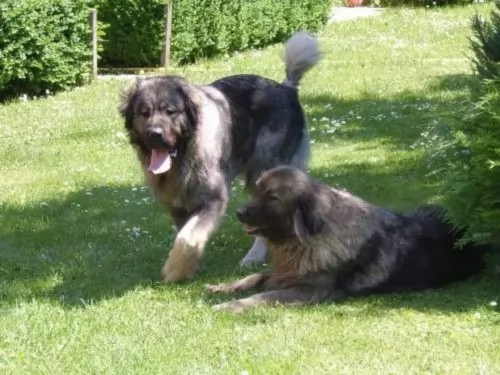 Every dog needs care from puppyhood through to old age.
Every dog needs care from puppyhood through to old age.
Šarplaninacs are looked upon as medium maintenance dogs. The coat is long and thick and requires a firm bristle brush to get their hair brushed.These dogs are moderate shedders so a brush twice a week will do the trick to keep the hair free of loose hair and matting.
Because these dogs have floppy ears, they will need to be checked and cleaned. Floppy eared dogs battle with moisture and wax build-up that increases the likelihood of ear infections.
Check the eyes that they are clear and free of discharge. Eyes with a lot of discharge can be indicative of health problems.
Check for any unusual lumps as cancer often starts with a new lump.
Provide your pet with a nice warm, dry place to sleep.
Keep his vaccines up to date to prevent deadly canine diseases.
Have him or her spayed or neutered if you don’t want puppies. These are regular procedures for a vet and offers health benefits for the dog. Neutering a male improves his character and keeps him from roaming. These dogs are capable of having 3 – 8 puppies.
The Sarplaninac requires decent food if he is to remain healthy. Dog’s stomachs can become upset if they eat all kinds of sweet and spicy human foods.
Commercially manufactured dog food is a good backup food to have because of its convenience. Try to include some home-made food. Simply add into one big pot chicken, brown rice or pasta and spinach, sweet potatoes and carrots. This food can all be chopped up and added in to the dry kibble twice a week. Give this to your pet twice a week and see how his tails wags when he smells it.
Also try to add in some raw meat to his food occasionally.
Ensure there is always a bowl of fresh, cool water within his reach.